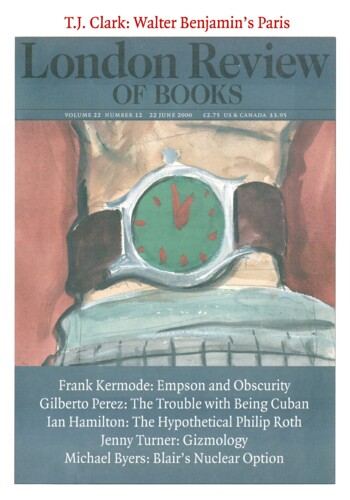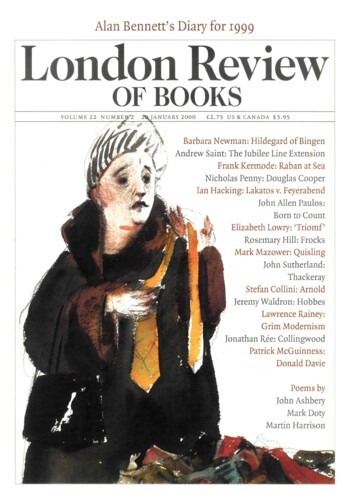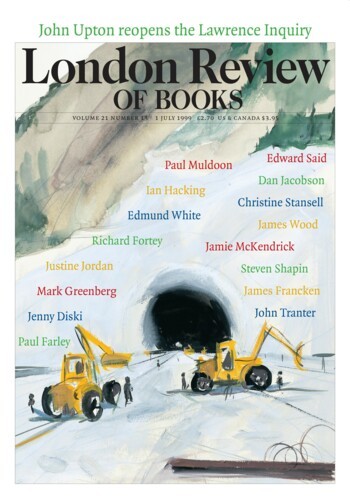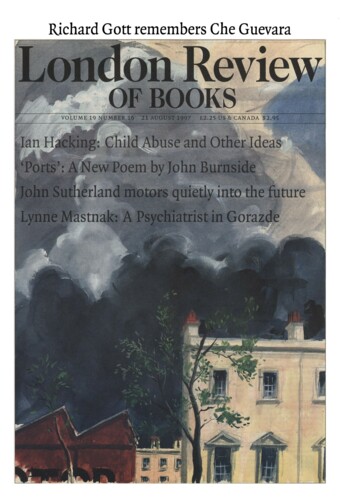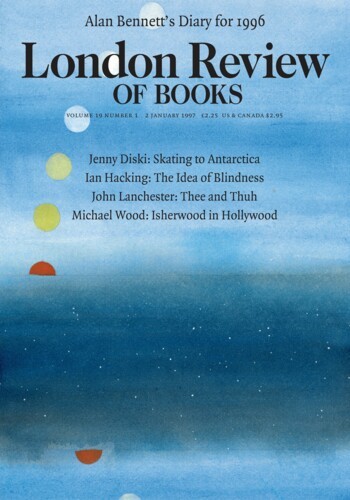‘Screw you, I’m going home’
Ian Hacking, 22 June 2000
Paul Feyerabend, the philosopher of science and famous iconoclast about the sciences, wrote in Killing Time, his autobiography published post-humously in 1996, that ‘in an incautious moment’ he had promised his young wife that he would produce ‘one more collage, a book no less, on the topic of reality’. He stopped work in November 1993 when he became ill, and died soon afterwards, at the age of seventy. So now we have even more of a collage than he intended. Half the published book is literally half a book, for at page 128 we find the final footnote: ‘Here ends the manuscript.’ The remaining 140 pages are versions of papers written after 1989, which run parallel to the book he was writing. We owe the excellent editing to a Dutch engineer working for Shell: Bert Terpstra had sent an intelligent fan letter out of the blue, too late for Feyerabend to have read it. On the strength of that letter Feyerabend’s widow, Grazia Borrini-Feyerabend, had the wit to choose him as editor.‘
